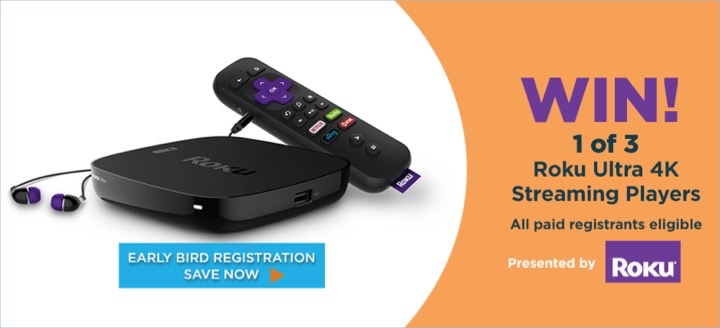-
DOJ’s Suit Against AT&T-Time Warner Deal Ignores Industry Realities
Yesterday the U.S. Department of Justice’s Antitrust Division sued to block AT&T’s proposed $108 billion acquisition of Time Warner. The suit breaks with decades of past practice where the DOJ has permitted “vertical mergers” (deals between companies operating in different segments of an industry) accompanied by certain operational limitations (so-called “behavioral remedies”). AT&T has pledged to counter sue, which means the deal’s outcome will now be decided in court.
Though I’m not a lawyer, I’m willing to bet that AT&T is going to prevail for one simple reason: the DOJ’s complaint virtually ignores realities in the TV and video industries. It is only by ignoring these facts that the DOJ is able to lay its foundation for asserting that the AT&T-Time Warner would have too much power, potentially harm competitors and stifle innovation. AT&T’s task is to demonstrate the DOJ’s foundation is faulty, and therefore that its decision to block the deal is unfounded.Categories: Deals & Financings, Regulation, Skinny Bundles
Topics: AT&T, Time Warner
-
VideoNuze Podcast #396: Philo’s Narrow Opportunity; Roku Builds a Flywheel
I’m pleased to present the 396th edition of the VideoNuze podcast with my weekly partner Colin Dixon of nScreenMedia. Many thanks to Brightcove, this week’s podcast sponsor. Brightcove will be presenting insights on server-side ad insertion at our SHIFT Programmatic conference on Nov. 29th.
First up, we explore the potential of Philo, the entertainment-oriented skinny bundle that launched earlier this week. For $16 per month, it’s relatively inexpensive, but neither Colin nor I see it as a game-changer for its backers. Key issues are lack of marquee entertainment networks, completion from other skinny bundles and a glut of high-quality entertainment programming from big SVOD providers.
We then dig into Roku, which reported its first quarterly results as a public company last week. We’re both impressed with how Roku is transitioning from a pure OEM device maker to a licensing and media company focused on online video advertising. By growing its installed base of Roku owners, which in turn supports its ad business, Roku is in the early stages of building a nice flywheel. We discuss both the potential of its model and possible risks.
Listen in to learn more!
Click here to listen to the podcast (25 minutes, 31 seconds)
Click here for previous podcasts.
Click here to add the podcast feed to your RSS reader.
The VideoNuze podcast is also available in iTunes...subscribe today!Categories: Advertising, Devices, Podcasts, Skinny Bundles
-
Connected TV Advertising is Surging
It’s no secret that connected TV devices have made huge gains in the U.S., with penetration at 60% of homes or more depending on the research source. But whereas these devices were initially used mainly for streaming Netflix and other ad-free SVOD services, evidence is building that viewers are also now using these devices to watch ad-supported video, in turn driving a huge expansion of ad inventory.
For example, Roku has been saying for a while that Netflix’s share of overall Roku users’ watch time has been steadily decreasing, with ad-supported channels gaining. And today, Beachfront Media, a video supply-side platform, said that it saw a huge jump in CTV ad requests to over 2 billion in Q3 ’17. Beachfront works mainly with mid-tail and long-tail video providers like WatchMojo, Newsy and Crunchyroll.Categories: Advertising, Devices
Topics: Beachfront Media
-
Two Weeks From Today at SHIFT Programmatic: Hear from 40 Speakers Including NBCU, UniversalMcCann, Turner, Bloomberg, Vevo, eMarketer + Many Others
Two weeks from today will be our 3rd annual SHIFT // Programmatic Video & TV Advertising Summit on November 29th in NYC. The program is locked in with 40 amazing speakers who will be featured in keynotes, research presentations, fireside chats and panel discussions throughout the day.
Kicking things off will be Lauren Fisher, Principal Analyst at eMarketer, who will share details behind her forecast that programmatic video & TV will exceed $17 billion by 2019.
Our morning keynote interview is with Mike Rosen, EVP, Portfolio Sales and Strategy, NBCUniversal and the afternoon keynote interview is with Jon Stimmel, Chief Investment Officer, Universal McCann. In addition, Dan Aversano, SVP, Ad Innovation and Programmatic Solutions at Turner Ad Sales will be featured in an afternoon spotlight fireside chat.
A reminder that all SHIFT paid attendees will be entered to win 1 of 3 Roku Ultra 4K players, generously provided by Roku. Additional discounts are available on 5-packs and 10-packs. And, startups and students can register for the reduced $245 ticket (contact me for the code).
As always, there will be abundant networking opportunities with speakers and attendees at SHIFT.
Please join us for what will be the highest-impact day of learning and networking around programmatic video & TV of 2017.
Learn more and register now!Categories: Advertising, Events, Programmatic
Topics: SHIFT // 2017 Programmatic Video & TV Advertising Summit
-
Philo Launches Entertainment-Only Skinny Bundle
Philo has officially launched as a $16 per month entertainment-only skinny bundle targeted to viewers who don’t care about sports. The company has also raised $25 million from Discovery, Viacom, Scripps, A+E Networks and AMC, which are represented among the 37 TV networks included in Philo’s base tier. Another 9 TV networks are available for an additional $4 per month.
Philo’s primary value proposition is that it frees non-sports fans from paying the exorbitant costs of sports programming that are embedded in the typical monthly pay-TV bill. A while back I estimated that at least $2 billion per year flows from non-sports fans to sports-oriented TV networks as an annual subsidy for networks that are rarely, if ever viewed. These billions in turn fund massive player salaries and support team valuations. The wastefulness of tens of millions of non-sports fans paying for programming they don’t care about is the single most inefficient aspect of the TV industry’s current structure.Categories: Skinny Bundles
Topics: Philo
-
LAST DAY to Save $100 on Tickets to Nov. 29th SHIFT // 2017 Programmatic Video & TV Ad Summit
Today’s the last day for early bird discounted tickets for the SHIFT // 2017 Programmatic Video & TV Advertising Summit on Wednesday, November 29th in NYC. Early bird registration saves you $100 and also doubles your chances* of winning 1 of 3 Roku Ultra 4K players, generously provided by Roku. Additional discounts are available on 5-packs and 10-packs. And, startups and students can register for the reduced $245 ticket (contact me for the code).
SHIFT is going to be a jam-packed day of learning and networking with 30+ industry executives on a dozen different sessions. Attendees will hear from companies leading the charge into programmatic video and TV including 4C Insights, A+E Networks, Amplifi, Beachfront Media, Bloomberg Media Group, Brightcove, Cedato, Cross MediaWorks, eMarketer, FreeWheel, Fox Networks Group, IAB, IBM Watson, MediaLink, Prohaska Consulting, Publicis, Roku, SintecMedia, SpotX, Time, Inc., Turner Ad Sales, Vemba, VertaMedia, Vevo, Viacom, Videology and others.
Our amazing keynoters are Mike Rosen, EVP, Portfolio Sales and Strategy, NBCUniversal and Jon Stimmel, Chief Investment Officer, Universal McCann,
I hope you’ll join us for this must-attend day of learning and networking!
Learn more and register now!
(* Early bird registrants get 2 entries each for the Roku Ultra drawings.)Categories: Advertising, Events, Programmatic
Topics: SHIFT // 2017 Programmatic Video & TV Advertising Summit
-
VideoNuze Podcast #395: Will the AT&T - Time Warner Deal Get Approved?
I’m pleased to present the 395th edition of the VideoNuze podcast with my weekly partner Colin Dixon of nScreenMedia. Many thanks to Brightcove, this week’s podcast sponsor. Brightcove will be presenting insights on server-side ad insertion at our SHIFT Programmatic conference on Nov. 29th.
The Justice Department’s Antitrust Division has reportedly put 2 unpalatable options in front of AT&T to gain approval for its proposed acquisition of Time Warner: divest Turner (including CNN) or divest DirecTV, which was only acquired 2 years ago.
On today’s podcast, Colin and I discuss how incongruous it feels for the government to assert AT&T will be gaining too much market power by acquiring Time Warner. To the contrary, Colin and I believe the market power of all incumbent media and telecom companies has dramatically decreased as big digital players like Google, Amazon, Apple, Netflix, Facebook, etc. have become leaders in advanced advertising and subscription business models.
Recognizing the massive disruptions, including accelerating cord-cutting, established providers are scrambling to reinvent themselves, with Disney’s decision to go direct to consumer with its most premium content the best example. We discuss how government limits on the ways established companies can reposition themselves for this era would be a major limitation.
Listen in to learn more!
Click here to listen to the podcast (23 minutes, 31 seconds)
Click here for previous podcasts.
Click here to add the podcast feed to your RSS reader.
The VideoNuze podcast is also available in iTunes...subscribe today!Categories: Deals & Financings, Podcasts, Telcos
Topics: AT&T, Podcast, Time Warner
-
Antitrust Head Delrahim in Hot Seat on AT&T - Time Warner Deal
No doubt you’ve already heard about the remarkable turn of events in the saga of AT&T’s acquisition of Time Warner. As reported by multiple news outlets yesterday, the Justice Department’s Antitrust division is apparently telling AT&T it would have to commit to either divesting Turner (including CNN) or DirecTV in order to gain regulatory approval for the deal. Both are totally unpalatable to AT&T.
All of this puts Makan Delrahim, the recently confirmed head of the Antitrust division in the hot seat. Assuming he decides to block the deal and AT&T then sues the government, it will fall to Delrahim to make the government’s case that absent any divestitures, the deal would be anti-competitive. The bar is even higher for Delrahim because when he was a professor at Pepperdine, he said in a telephone interview with Canada’s BNN that he did not see the deal as a “major antitrust problem.” He explained that any Antitrust objection must be based on a belief that the deal would “substantially lessen competition” by “very defined legal and econometric standards” and that the burden of proof is on the government to prove this in federal court.Categories: Deals & Financings, Regulation, Telcos
Topics: AT&T, Time Warner



